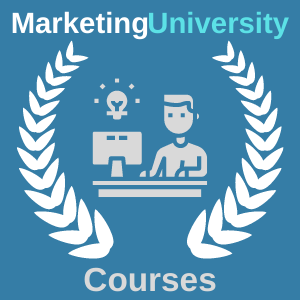Education as a Lucrative Income Source: Exploring the Pros and Cons
Introduction
In today’s fast-paced world, education plays a pivotal role in personal and professional development. People recognize the value of education as a fundamental tool for acquiring knowledge, skills, and experiences. As a result, educational institutions have thrived by providing learning opportunities to individuals seeking to enhance their lives.
The e-learning industry, in particular, has witnessed significant growth in recent years. With the advancement of technology, people can now access educational content and services conveniently, from the comfort of their homes or offices. This has opened up doors to entrepreneurship, with successful businesses rooted in educational offerings.
However, despite its potential, education as a revenue stream does come with its fair share of challenges and potential downsides. In this article, we will delve into the pros and cons of education as a lucrative income source, exploring the various factors that warrant careful consideration.
Pros of Education as a Lucrative Income Source
-
Rising Demand: The demand for education continues to rise as people recognize the importance of continuous learning for personal and professional growth. This growing demand offers ample opportunities for educational institutions and ed-tech companies to generate revenue.
-
Diverse Revenue Streams: Education provides numerous avenues for generating income. These can include tuition fees, enrollment fees, course materials, certifications, partnerships, sponsorships, and even licensing deals with other educational institutions.
-
Global Reach: With the advent of technology, educational content can now reach a global audience. This opens up vast opportunities for providing educational services to learners worldwide, regardless of geographical boundaries.
-
Innovation and Adaptability: Educational institutions and ed-tech companies have the freedom to innovate and adapt to changing educational paradigms. They can develop new courses, update existing curriculum, and incorporate emerging technologies to cater to the evolving needs of learners.
-
Long-Term Investment: Education is a long-term investment that can continue to generate revenue over an extended period. Once courses are developed and infrastructure is established, educational institutions can benefit from a steady stream of income for years to come.
Cons of Education as a Lucrative Income Source
-
Rising Costs: Educational institutions face the challenge of increasing costs associated with hiring qualified faculty, maintaining infrastructure, acquiring technological resources, and meeting regulatory requirements. These costs can eat into their profit margins, making it harder to maintain a lucrative income.
-
Intense Competition: The education industry is highly competitive, with numerous institutions vying for a limited pool of learners. Ed-tech companies face competition from established educational institutions as well as emerging startups. This intense competition can squeeze profit margins and make it challenging to stand out from the crowd.
-
Quality Variances: The quality of education can vary widely among different institutions and e-learning platforms. Ensuring consistently high-quality education is crucial for maintaining a positive reputation and attracting new learners. Failing to provide valuable education can lead to decreased enrollment and negative reviews.
-
Student Loan Debt: Many individuals pursue higher education to improve their job prospects, but this often comes with a hefty price tag. Student loan debt can be a burden for students, and if they are unable to secure well-paying jobs, it can have long-term financial implications.
-
Field of Study: The profitability of education depends on the field of study. Some fields, such as medicine, engineering, and technology, offer lucrative career opportunities, while others may have limited job prospects. It is essential to research and understand the market demand for specific fields before investing in educational courses or programs.
Conclusion
Education has undoubtedly emerged as a lucrative income source in today’s digital age. The rising demand for continuous learning, coupled with global reach and diverse revenue streams, presents significant opportunities for educational institutions and ed-tech companies.
However, challenges such as rising costs, intense competition, quality variances, student loan debt, and the varying profitability of different fields of study must be carefully considered. Thorough research and informed decision-making are crucial for anyone looking to invest in education as a revenue stream.
Ultimately, education can be a rewarding and profitable endeavor if pursued with careful consideration of costs, benefits, and market demand. As the world continues to evolve, those who can capitalize on the opportunities presented by education will find themselves on the path to success.
Remember to use appropriate headings for H tags with Markdown language.
Headings:





